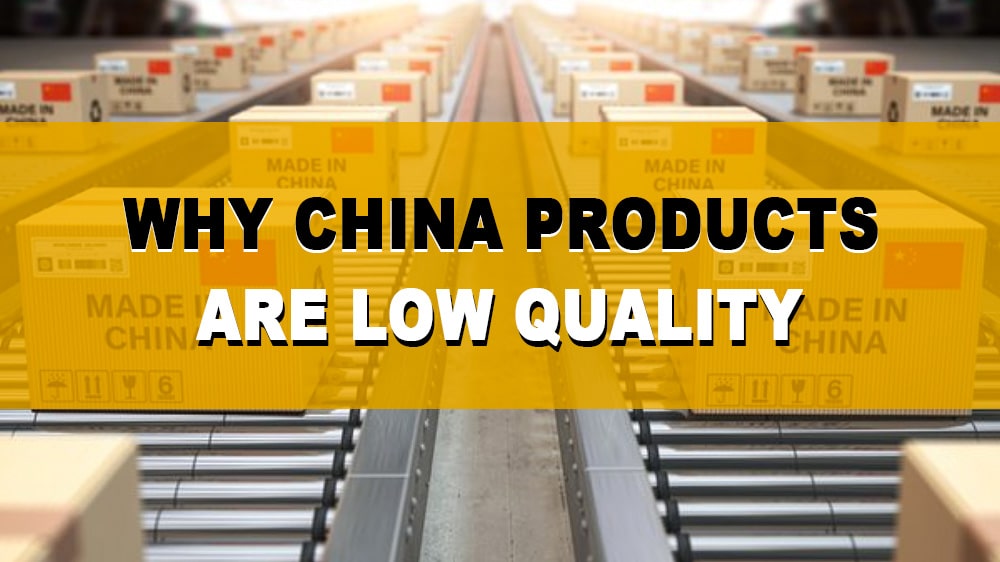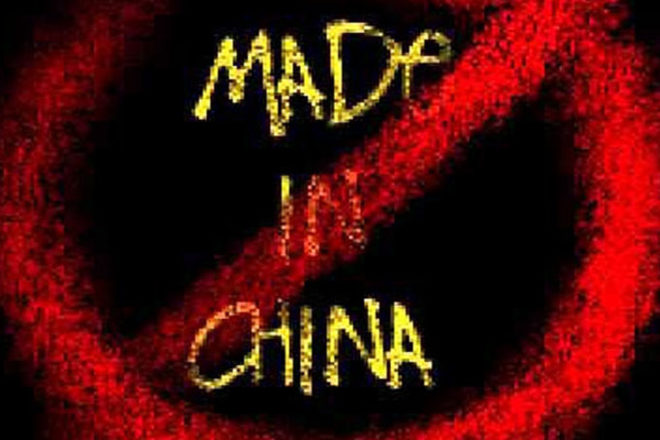World’s Obsession for Low-quality products Made in China!
China is the largest manufacturer in the world, both in terms of volume and variety. It produces everything from the world’s cheapest products to the latest high-tech gadgets. The label “Made in China” is often seen as both a popular and premium brand. However, it is also associated with inferior and counterfeit products, which raises concerns among consumers.
The obsession with low-quality products from China reveals deep-rooted issues in the manufacturing landscape. While there is potential for high-quality production, systemic problems related to accountability, ethics, and enforcement hinder progress. As global consumers become more discerning, the pressure on Chinese manufacturers to improve quality will only increase. Ultimately, both manufacturers and consumers must recognize the value of quality, not just in terms of profit but also for long-term sustainability and reputation in the global market.

Why Low-Quality Products?
Many people wonder why China is synonymous with low quality. Several factors contribute to this perception. One significant issue is the political system in China. The incentive structure in place rewards manufacturers for generating foreign currency through trade without an effective evaluation process. This leads to a lack of accountability, allowing manufacturers to prioritize profit over quality.
Role of the Communist Party
The Chinese Communist Party encourages domestic manufacturers to engage in international trade. However, there is no punitive measure for unethical practices. This creates a situation where manufacturers can cut corners to maximize profits, ultimately leading to low-quality products entering the market.

Voluntary Quality Standards
National quality standards in China are largely voluntary. Authorities often overlook violations unless they become a public issue. For example, China issued around 15,000 standards in 2003, but enforcement remains weak. While many Chinese manufacturers are capable of producing high-quality products, such as the iPhone, the systemic issues often lead to the production of inferior goods.
Historical Incidents
The world has seen severe consequences of low-quality production in China. A notable incident involved melamine-tainted milk, which sickened thousands of babies. Although the Chinese government took action against a few culprits, including severe penalties, similar issues have reoccurred. This raises questions about a system where even harsh punishments fail to deter unethical practices.
Ineffective Enforcement of Legal Rights
The enforcement of legal rights in China is often ineffective. Regulators and civil lawsuits struggle to hold manufacturers accountable for low-quality products. Stricter enforcement often only occurs when there is a public outcry. This lack of accountability fosters an environment where cutting corners becomes the norm.
Cutting Corners in Business
The concept of “cutting corners” refers to taking shortcuts to save time or money, often at the expense of quality. In China, this practice seems to be ingrained in business culture. The intense competition and a shift away from traditional ethics contribute to this trend. Chinese companies are often ruthless in reaching targets, and compromising on quality is just another tactic.
Impact of Low Prices
China’s ability to produce low-cost products stems from several factors, including cheap labor and raw materials. The country has a massive labor force that works for lower wages compared to other regions. Additionally, the lack of labor rights means that workers can be forced to work long hours, often exceeding 12 hours a day. This is less common in democratic nations, where labor laws are more stringent.
Consequences for Global Markets
The influx of low-quality Chinese goods significantly impacts global markets. Countries importing these products often see their own manufacturing industries suffer. The system in China pushes manufacturers to produce low-grade products to secure contracts and foreign currency. Low prices win contracts, but the quality often suffers as a result.

Innovation vs. Imitation
Chinese manufacturers are often criticized for lacking innovation. Instead of creating new products, many focus on copying existing ones. This approach allows them to produce cheap goods quickly, but it undermines the potential for quality. Many Chinese businesses prioritize profits over ethical considerations, leading to a market flooded with subpar products.
Contracts and Accountability
When Chinese manufacturers secure contracts, they often lack a commitment to quality. The prevailing culture of cutting corners complicates the relationship between manufacturers and customers. In competitive markets, sellers can easily profit from cheap Chinese products, making it difficult for domestic manufacturers to compete.
The Apple Example
Even companies like Apple, known for high-quality products, often try to downplay their manufacturing ties to China. This highlights a broader issue where Chinese exporters may prioritize profit over quality. They may export low-quality goods internationally while reserving the best products for their domestic market, further complicating perceptions of “Made in China.”

Reasons Behind Low-Quality Production
Despite some high-quality items coming from China, the country is also infamous for its low-quality products. Several factors contribute to this issue:
Fraud
Some manufacturers engage in fraudulent practices to cut costs and maximize profits. This includes using inferior materials or failing to meet safety standards.
Incompetence
In some cases, manufacturers may lack the skills or knowledge required to produce high-quality goods. This incompetence can lead to a range of quality issues.
Ignorance
Some manufacturers may simply be unaware of the importance of quality. This ignorance can perpetuate the cycle of low-quality production.

Quality Fade
With the declining growth rate of the Chinese economy, manufacturers face increasing pressure to maintain profitability. Many are experiencing a phase of “Quality Fade,” where the overall quality of goods deteriorates. This is particularly evident when comparing Chinese products to those from Western or Japanese manufacturers. In China, prioritizing quality is often seen as a barrier to business growth and profit maximization.
Need for Change with Made in China
To improve the quality of products, there needs to be a cultural shift within Chinese manufacturing. This involves implementing stricter regulations and holding manufacturers accountable for their practices. Consumers worldwide are increasingly aware of the quality issues associated with “Made in China” and are demanding better standards.














